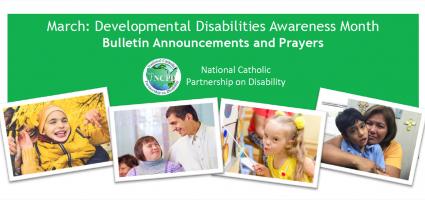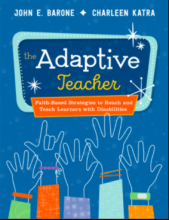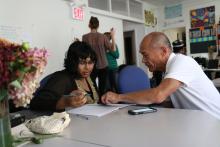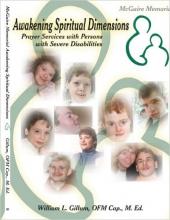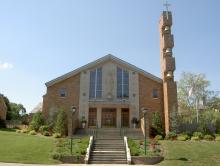This page covers both intellectual and developmental disabilities. Developmental disabilities are impairments in physical, learning, language, or behavior that begin during the developmental stage and typically last throughout a person’s lifespan (CDC). An example of a developmental disability is cerebral palsy, which is a motor disability that prevents a person’s ability to move their muscles (CDC). Developmental disabilities include--but are not limited to--intellectual disabilities which limit a person’s adaptive functioning in conceptual, practical, and social domains (APA). Intellectual disabilities include autism spectrum disorder, down syndrome, and fetal alcohol spectrum disorder. It is important for parishes and families to not make assumptions about the capabilities of a person with a developmental or intellectual disability since the capabilities and limitations of each person with these conditions varies widely. NCPD has a Committee on Intellectual and Developmental Disabilities which works to provide resource to promote the meaningful participation of persons with disabilities in the Church. Browse the resources below to learn more about how to promote the meaningful participation of persons with developmental and intellectual disabilities in your parish.







